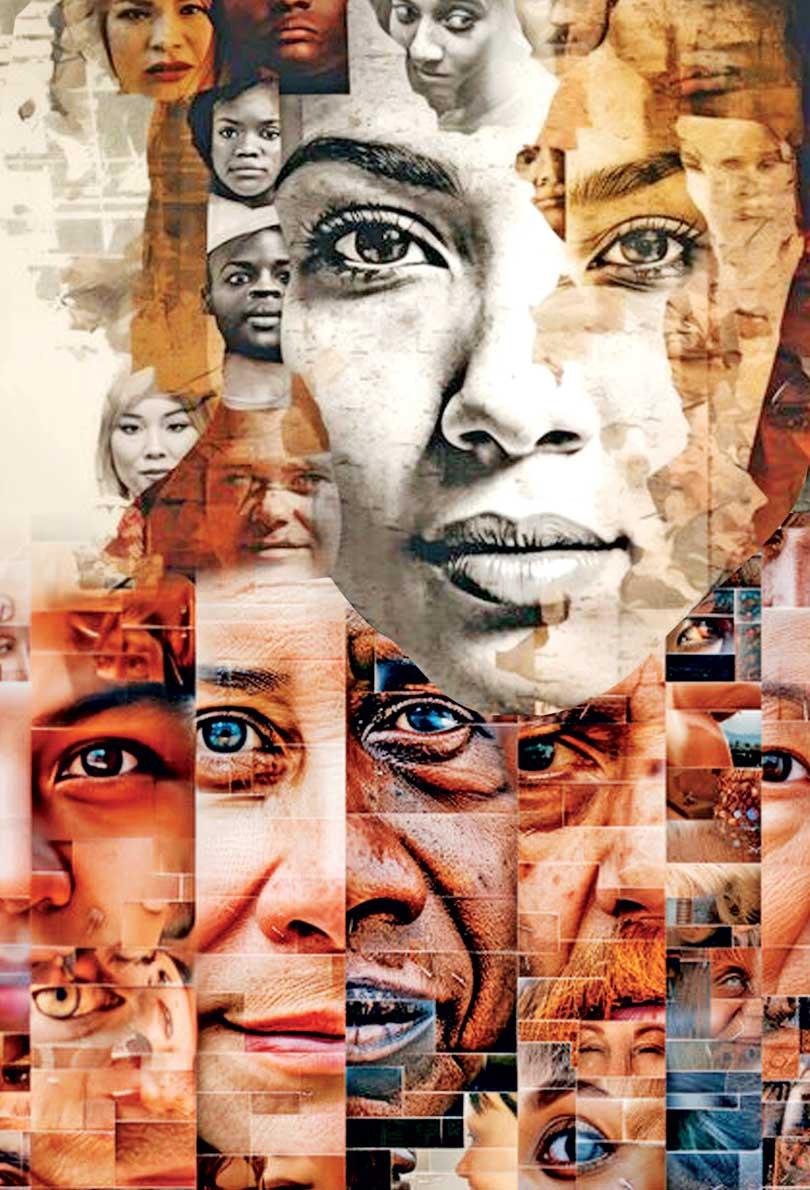


Think of Chimamanda Ngozi Adichie’s widely shared TED talk, “The Danger of a Single Story.” She highlights how African stories are often told from an outsider’s gaze, reducing vibrant, complex societies into a flat narrative of poverty and war. Why? Because those stories fit comfortably within a colonial framework of superiority and saviorism.
Because representation is not just about “feeling seen”, it’s about justice. The absence of diverse voices in storytelling isn’t neutral. It creates real-world consequences.
In every culture, in every era, stories have shaped how we see the world, and how the world sees us. They teach us who the heroes are, who deserves empathy, and what version of the truth gets remembered. But beneath the beauty of storytelling lies a brutal question that too often goes unasked: who gets to tell the story? Because the one who holds the pen holds the power. And in a world built on hierarchies of race, gender, class, and language that pen rarely lands in neutral hands.
The Invisible Hand That Edits
When we talk about representation, many people think of what’s visible: the brown girl on screen, the working-class hero in a novel, the woman finally leading a boardroom drama. But true representation doesn’t begin with the character. It begins with the narrator. Who gets to speak, and who is always being spoken about? In literature, film, media, and even history books, representation is often curated, not to reflect reality but to serve dominant ideologies. And while it may appear that we're becoming more inclusive, we must ask: are we expanding who creates the story, or just tweaking the characters in a script still written by the same hands?
Literature
The Gatekeeping of Voice
Take literature, for instance. Western literary canon still largely elevates white, male, Eurocentric voices. Postcolonial authors, especially those writing in non-European languages, have historically been excluded, exoticized, or only celebrated once their work is deemed “palatable” to the West. Think of Chimamanda Ngozi Adichie’s widely shared TED talk, “The Danger of a Single Story.” She highlights how African stories are often told from an outsider’s gaze, reducing vibrant, complex societies into a flat narrative of poverty and war. Why? Because those stories fit comfortably within a colonial framework of superiority and saviorism. Even within South Asia, English-language literature often overshadows local languages. A Tamil or Sinhala novel rarely makes it to the international stage unless it’s translated, and even then, it’s filtered through the lens of the translator, the publisher, and the market.
In essence, the storyteller is often chosen based on who they make comfortable, not who they make visible.
Film
Whose Trauma Gets the Spotlight?
Hollywood’s reckoning with diversity has birthed a surge in minority-led stories, but again, representation is not just about faces, it’s about authorship. Who writes the script? Who directs the lens?
And more often than not, these stories are told by people outside of the community, well-meaning, maybe, but often unintentionally reinforcing stereotypes or missing the nuance. This raises an uncomfortable truth: is the industry promoting representation, or simply curating what’s profitable from it?
Even closer to home, in Sri Lankan cinema, how many mainstream films are made by Tamil directors or depict Muslim or Upcountry Tamil communities without caricature or pity? Rarely do these groups get to direct their own stories, they are either vilified or sanitized to fit a Sinhalese-majority gaze.
History
The Ultimate Story War
And perhaps the most dangerous space where this question plays out is history.
History is storytelling with the illusion of objectivity. But every history book is a product of politics, what’s included, what’s omitted, and what’s rewritten. In Sri Lanka, for example, our school textbooks rarely discuss the brutalities of the civil war from multiple perspectives. They gloss over the lived experiences of Tamil civilians or Muslim displacement during the conflict. What we call “history” is often state-sanctioned memory. Victors become heroes, and victims are erased. Indigenous stories become myths. Colonial violence becomes “development.” The few who question this narrative are seen as unpatriotic or radical. Globally, too, this plays out with chilling consistency. In the U.S., school boards in several states are trying to ban books that deal with slavery or critical race theory. In India, textbooks are being rewritten to exclude the Mughal empire and Gandhi's assassin is being rebranded as a patriot in some circles. When history is curated by the powerful, it doesn’t teach, it conditions. It tells us not only what happened, but what to believe about it.
The Cost of Exclusion
Why does this matter? Because representation is not just about “feeling seen”, it’s about justice. The absence of diverse voices in storytelling isn’t neutral. It creates real-world consequences. When entire communities are stereotyped or silenced, it informs public policy. It affects policing. It fuels caste and ethnic bias. It justifies war. It shapes how citizens vote, how courts rule, and how the international community responds to crises. Storytelling is not soft power. It’s the foundation of hard power.
So, Who Should Tell the Story?
This is not a call to gatekeep storytelling by identity, no one should be told they can't write outside their experience. But it is a call for accountability. If you're writing a story about a community you’re not part of, ask:
Have I done the work to understand this community beyond my assumptions?
Am I collaborating with people from this community?
Am I centering their voice, or overshadowing it?
For publishers, producers, editors, and teachers, the challenge is even clearer: amplify more voices, not just the ones that sound like yours. Open the door. Share the mic. Pay people to tell their own stories.
A Future Worth Writing
The most radical act we can do in today’s polarized world is not to speak over others, but to listen. To hand over the pen. To recognize that our version of the story is not the story. Let’s build a future where stories are no longer filtered through the narrow gaze of privilege, but expanded through the rich, messy, vibrant diversity of the human experience. Because stories are not just how we entertain. They’re how we remember. How we forgive. And how we change the world.











